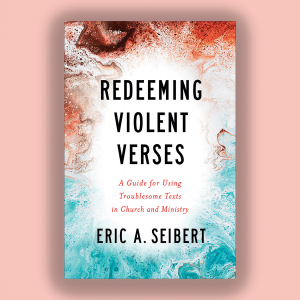
Brandon Grafius is academic dean and associate professor of biblical studies at Ecumenical Theological Seminary, Detroit. His book Lurking Under the Surface: Horror, Religion, and the Questions that Haunt Us, was published in 2022 by Broadleaf Books; his next book, Scared by the Bible: Learning to Listen to What Frightens Us About Scripture, is forthcoming in 2025 from Morehouse Publishing.
Posts By This Author
‘The Last of Us’ Understands the Toll of Revenge
So far, this escalating feud is a rather depressing back-and-forth, a cycle of violence for which there doesn’t seem to be any way out. But instead of letting us bask in Ellie’s righteous violence a la John Wick, the series questions the line between justice and revenge, asks whether mercy has any part in the equation, and doesn’t offer any easy answers to these reflections.
The Phone Call Getting My Church Through Trump 2.0
These first few weeks of President Donald Trump’s administration have already been grueling, with a blizzard of executive orders that run the gamut from trolling to hurtful to alarming. We all remember this feeling from the last time around — there are so many shiny objects of outrage for us to chase that after a little while it’s easy to just throw up our hands, admit defeat, and decide to wait out the maelstrom by streaming our favorite television series. So many people are hurt and scared; many are just exhausted.
During Trump’s inauguration in 2017, many responded by attending one of the hundreds of Women’s Marches around the country. Those who participated in these marches set the record for the largest single-day protest in United States history. During Trump’s inauguration this January, the protesters were sparse. It’s easy to feel isolated, alone, and hopeless. For us to get through Trump 2.0 together, we need to figure out new ways to organize.
How End Times Theology Shaped U.S. Immigration Policy
The U.S. has always considered itself as this New Jerusalem — a land specially blessed by God — but also one that is only available to those specially chosen. And from the establishment of the United States as a nation, as Lin discusses, this drive to only welcome certain individuals has been heavily focused on questions of race and national origin. The notion that the U.S. is a nation that welcomes immigrants is a myth that contradicts historical record. Instead, our “[i]mmigration and naturalization laws serve ultimately to create the ideal population as conceived by those who set policy and legislate,” Lin writes.
Redeeming Violent Verses
Eric A. Seibert offers ways for church leaders to retell biblical stories to imagine a nonviolent outcome.
ONE OF MY EARLIEST memories of church is being in the children’s choir, pumping my fist in the air and yelling as we sang about David’s victory over Goliath. While my vocal pitch was suspect, I didn’t lack for enthusiasm. But the whole performance taught me something dangerous: Righteous violence is exciting. It’s a lesson I’ve spent a large part of my adult life trying to unlearn.
Eric A. Seibert is a key figure in working through the violent passages of the Hebrew Bible. In his newest book, Redeeming Violent Verses: A Guide for Using Troublesome Texts in Church and Ministry, Seibert argues that the church can’t run away from violent Bible verses. Moreover, he writes, we must incorporate them into our religious experiences. But, Seibert cautions, we must always do this in a way that rejects the glorification of violence that is often found within scripture. Seibert offers several ways for church leaders to accomplish this, including refocusing attention on the victims of violence, or retelling the story to imagine a nonviolent outcome. Individual chapters highlight some specific ideas for how this can be done in children’s education, liturgy, and preaching.
The Many Ghosts of the Revised Common Lectionary
There are large swaths of the Bible that the lectionary skips over. And while there are lots of reasons for not including certain passages, it doesn’t take too long to notice one major pattern: Passages that are uncomfortably violent (or just angry) are frequently left on the cutting room floor, and consequently left out of Sunday worship.
‘The Sandman’ Grapples with a World Full of Terror and Grace
Viewers would be wise to approach The Sandman expecting a slow burn rather than a breakneck action extravaganza. There’s plenty of horror, but these moments are spaced out through the deeply human moments of Morpheus coming to terms with what it means to serve humanity.
In ‘Stranger Things,’ It’s the Bad Guys Who Quote Scripture
Scripture is quoted twice in the latest season of Stranger Things, a first for the Netflix original that introduced us to the military experiments happening in the small Midwestern town of Hawkins, Eggo-loving Eleven, and the magic of Steve Harrington’s hair.
‘Men’ Shows Christianity’s Horrifying Legacy of Blaming Women
Men uses imagery from Genesis 3 to reflect on the culturally assigned guilt of women and the patriarchal system that has perpetuated this guilt through a centuries-long history of interpretation.
What Can Horror Teach Us About the Bible?
Horror has always leaned on religion to provide the backbone for its explorations of evil, even before the first time Dracula cowered in fear at the sight of a cross. But religion doesn’t just inspire the horror genre, it utilizes it, too. The Bible is full of horror.








